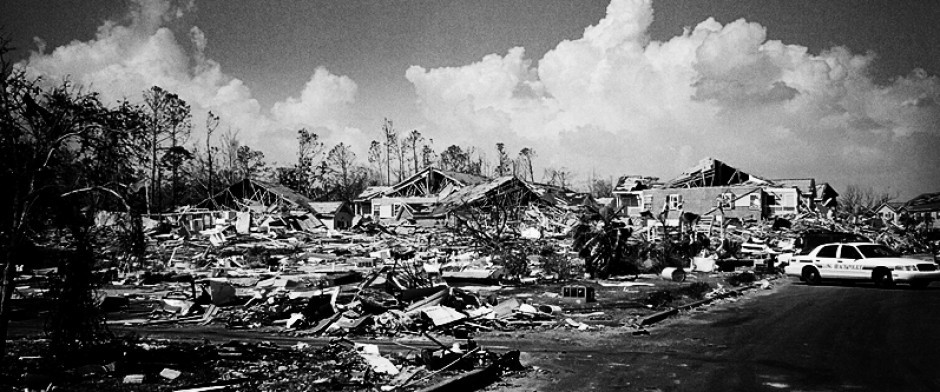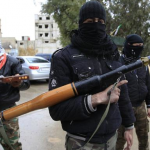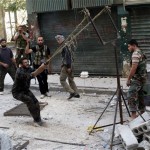 This article is one of a multi-part series on the immense folly of what appears to be an imminent war now with Iran. This article discusses the feasibility of a successful strike to stop Iran’s nuclear development. Naturally, if a nation is going to be led into another war, the public deserves in advance a vigorous debate on what it will take to accomplish the aims of the war. In previous exclusive articles, the Israeli offensive attack plan for Iran was exposed. In upcoming articles, the threat Iran actually presents will be debunked, the likely costs of an Iran War will be tallied, and alternative options to war will be presented.
This article is one of a multi-part series on the immense folly of what appears to be an imminent war now with Iran. This article discusses the feasibility of a successful strike to stop Iran’s nuclear development. Naturally, if a nation is going to be led into another war, the public deserves in advance a vigorous debate on what it will take to accomplish the aims of the war. In previous exclusive articles, the Israeli offensive attack plan for Iran was exposed. In upcoming articles, the threat Iran actually presents will be debunked, the likely costs of an Iran War will be tallied, and alternative options to war will be presented.
Over a decade of continuous global wars should have shown Americans that there are no clean, quick, bloodless wars. American invasions of both Iraq and Afghanistan have led to hundreds of thousands of dead and wounded, trillions of dollars in debt, a virtual police state domestically, and anything but decisive and favorable ends to those wars. Yet, once again the United States sits on the edge of plunging head first into the dangerous waters of an even bigger war. War propaganda and poorly informed, but well spun rhetoric from the media, AIPAC lobbyists, and bought politicians would lead the public to believe a single strike or short lived military campaign against Iran would lead to a swift end of its alleged nuclear aspirations. Before American citizens and their shrinking capital are committed to another utterly disastrous war, the public deserves a fair accounting of the true situation from a military perspective on whether or not a military strike will achieve a decisive and favorable end for the United States.
To gain this understanding, it is essential to dismiss the rhetoric that a quick and bloodless campaign could achieve decisive results. Decisive results would require the military to achieve a permanent end to Iran’s nuclear ambitions, which most likely involves a concurrent regime change. This article will demonstrate that neither a decisive end to Iran’s nuclear capabilities nor a change in regime is even remotely likely or possible without a massive, long term, costly, and bloody war. The fact that decisive short term effects are neither possible nor expected should forewarn the reader that the military options respective of effecting U.S. strategic goals toward Iran are simply not viable. Short of an imminent threat to the United States homeland by a nuclear armed Iran, where a total war would both be necessary and justifiable, war will not solve this problem for America. As such, alternative, non-military options toward Iran must be sought.
Contemporary military history is an apt starting point for this analysis. American military disasters in both Iraq and Afghanistan simply do not justify any belief that the U.S. will be able to achieve decisive ends in Iran via a short surgical strike. For comparison, consider Iran’s neighbors Iraq and Afghanistan, which were far less militarily capable or technologically sophisticated when invaded. These two relatively weak countries have tied down the U.S. military for over a decade. To date, neither war has achieved decisive strategic ends favorable for the United States. Based on the significant expenditure of time, money, material, and lives spent to prosecute wars in Afghanistan and Iraq for a gain of nothing and loss of much, one must estimate that any future war with Iran would end up costing at least as much and likely significantly more than Iraq and Afghanistan. Even worse, the strategic planners and senior policy makers that left the U.S. military drifting aimlessly without real leadership or a winning strategy from the very outset are still occupying the halls of the Pentagon and government. Combined, it is difficult to conceive of a scenario short of a nuclear strike that would not lead to an even greater indecisive and costly war for the U.S. To be specific, neither regime change nor a permanent end to Iran’s nuclear ambitions will be achieved by a limited surgical strike. Iran is too big, too populous, too distributed, and too determined for a single limited strike to be effective.
Delving further into the viability of a military strategy respective of Iran, the timeline and details of the wars in Afghanistan and Iraq provide even clearer evidence a strike won’t work or at least a more realistic view of the investment a war with Iran will require. The situation in Iraq is particularly telling. It began over two decades ago with Operations Desert Shield and Storm (The Gulf War), which were a massive coalition offensive using conventional military force numbers established for a war with the Soviet Union and a worldwide coalition. To put this in perspective, this war was begun before most of your young military recruits today were even alive! This war of limited objectives still required a massive military buildup, long term bombing campaigns, and then a massive land attack to achieve Iraq’s withdrawal from Kuwait. However, the Iraq war required another decade of lower level military operations enforcing embargoes and no fly zones that tied down immense military resources and then another full blown war to verifiably disarm Iraq of weapons of mass destruction and remove Saddam Hussein. Even now, after more than 20 years, the U.S. is still embroiled in an Iraq; a country that is not permissive for Americans to walk without fear of murder on the streets, acts contrary to U.S. interests, and still may likely split into independent nations with Kurdistan being the most likely candidate to break away first. Iraq is not an anomaly as our tenuous and deteriorating situation in Afghanistan after a decade of war per the latest National Intelligence Estimate (NIE) assessed. Those that believe the hollow cheers from the Obama administration that Afghans have taken the lead and things are improving in Afghanistan should take a moment to speak with returning ground soldiers or intelligence analysts. The all know the game is over and the U.S. is leaving the country in defeat just as the Soviets did over two decades earlier. Still skeptical believers might also consider reading a recent GAO study on the condition of Afghanistan’s military and police forces to operate on their own. According to the GAO study, barely 10% of Afghanistan’s military and police forces are capable of operations. Of these, they still require advisors and support. When the U.S. leaves, they will not be able to rely on the other 90% of units not capable of operation. Also, consider that the Taliban have been operating just fine against the U.S. and NATO forces without advisors or support for over a ten years and are actually gaining, not losing ground. It does not take Napoleon to see how this conflict will end after the U.S. retreat. The Afghan forces are simply incapable of defeating the Taliban on their own and the nation will break back down into the civil war that was ongoing at the time of the U.S. invasion once America completes its retreat. Now again, consider that Iran is a much larger, more populous, and much more technologically sophisticated country than either Iraq or Afghanistan. One would have to be ignorant of reality to thing a short lived attack on Iran would work.
Iraq and Afghanistan also should have taught policy makers and military planners a thing or two about how a population could be expected to react to being attacked or invaded. Iran’s population that maintains pro-western leanings is not insignificant and concentrated in the urban centers of Iran. Iran and the United States pre-1979 had good relations and many Iranians have over the generations moved to the U.S. and become fine citizens serving in the military, intelligence, and commercial realms with distinction. However, no matter how “noble” our excuse for war this time will be, just as in Iraq and Afghanistan, the population will turn decidedly against the U.S. and rally around the current regime should any attack take place. To plan or believe differently is to totally disregard the most basic of human natures. Further, even Iran’s pro-Western population also happen to overwhelmingly support Iran’s nuclear ambitions making any U.S. plans for winning popular Iranian support for an attack near zero. To the east in Afghanistan and Pakistan, the U.S. has also witnessed a steadily growing anti-American sentiment that has coalesced around a still vigorous Taliban centered resistance. This coupled with the sustained combat casualties, increasing Taliban control of regions, and growing calls for the withdrawal of the occupiers throughout the country should make it clear Americans are persona non grata in the region and will leave in defeat. If a policy goal of the U.S. is to replace the current Iranian regime, an attack alone would be significantly counterproductive and actually bolster the Iranian regime. It is important to note the case for regime change in Iran is fundamentally different than the support provided to Libyan rebels after a full scale civil war had already broke out with sides pro-regime and anti-regime. Nonetheless, one need not debate the questionable benefits of supporting a rebel force, be it in Libya or Syria, comprised of Islamic extremists that have committed numerous atrocities and are still fighting amongst themselves with tons of extremely dangerous weapons left unaccounted for and now fueling insurgencies, terrorist actions, and conflicts from Nigeria to Turkey. This should illustrate that even in the “best” of cases; things don’t ever work out as planned with regime change. On this note, one should also consider how one could possibly secure all of Iran’s military weaponry without an occupation force. Imagine the effect of the proliferation of millions of weapons ranging from surface-to-air missile to chemical weapons on the region and world for decades to come.
The historical evidence is convincing enough that the U.S. will again fall into the trap of an indecisive quagmire if it initiates a war with Iran, but is alone not enough to close the case. Going beyond dismissing the rhetoric of the viability of a swift strike on Iran being feasible based on past experience, one should consider today’s specific military implications and hurdles. To begin, statements from those in the know, leaders of military and intelligence communities, think a military option against Iran is in short, a bad idea. These statements from both American and Israeli leaders regarding how bad the idea of war with Iran is range from “not feasible” to “stupid.” These leaders include former U.S. Secretaries of Defense, Chairmen of the Joint Chiefs of Staff, senior Israeli politicians, and even the former head of Mossad. They all say an attack is a bad idea and should be avoided.
In defense of the “surprise surgical strike” option, mislead and ill-informed people often point out how successful the surprise Israeli strikes on Iraq’s Osirak nuclear facility and Syria’s allegedly nuclear facility were and suggest this could be duplicated. The problem with this logic is that these operations are not even remotely comparable in scope, complexity, difficulty, and risk. For starters, Iran has an unknown number of nuclear related facilities spread across the entire country to ensure continuity of operations even after an expected attack. These sites range from major gas/oil fields and remote mountain facilities, to downtown Tehran. This means that any attack will cause significant collateral damage to both civilians and world petroleum production. An attack would also result in a major environmental disaster. Radioactive clouds of debris (fallout) would spread throughout the Persian Gulf region if sites like the nuclear fueled and operational reactor at Bushehr are hit. For those that doubt this, look at the elaborate precautions the Department of Energy has taken to fortify and defend U.S. nuclear facilities. This is necessary because very bad things happen when you bomb a fueled nuclear reactor…like meltdowns. Next, most of these sites are hardened facilities buried underneath mountains and are ringed by layers of air defense systems. Finally, any credible attack will obliterate Iran’s infrastructure. There is no doubt the damage and chaos this will cause will extend beyond Iran’s borders. One can expect it to include disruption to regional power generation, disruption of oil and gas deliveries necessary for industry in India and China, global economic failures, massive regional ethnic unrest and upheaval, millions of refugees, empowerment of even more extreme Sunni regimes taking power throughout the Middle East and North Africa, and massive proliferation of former state controlled weapon systems throughout the region and world.
Beyond the nuclear related facilities, Iranian deterrence and defense capabilities have evolved greatly over a decade of watching and learning from American follies and operations in Iraq and Afghanistan. Most visible is Iran’s mines that could be used to choke off the Straits of Hormuz. Supporting any mining operation is a large number of anti-ship missiles, fast attack boats, and naval attack aircraft. Much of this Iran has taken great effort to clandestinely emplace. Of course the U.S. military could mitigate and or destroy most of these capabilities, but it would require a massive sustained operation to first destroy Iran’s air defense systems and command and control nodes. This could take many months and will cost billions of dollars to speak nothing of the global economic fallout from a disruption in oil supplies…even if short term. Some will no doubt argue that our F-22 Raptors and Stealth bombers, to include drones, could penetrate Iran’s air defenses and successfully attack many of Iran’s nuclear sites. This is true, but is reckless in the fact it completely disregards Iran’s ability to counterattack, which would still be fully intact. Until Iran’s counter attack capabilities are neutralized, the ability to overcome its defensive systems is a moot point. This is especially true if the U.S. Navy is expected to quickly clear the Straits of Hormuz of mines and open it to oil shipments without significant naval losses. Any ship in the Straits or the Persian Gulf is within range of Iranian anti-ship missiles, which can be volley fired and overwhelm ship anti-missile defenses. It is hard to imagine the American public agreeing that a strike on Iran would be worth the loss of an aircraft carrier, but the risk is very real. Even if America used highly secretive and technical electronic warfare capabilities to neutralize or destroy Iranian electronic hardware in its air defense and missile systems, it is doubtful that they would be effective enough across all spectrums to not leave exploiting gaps. It will also require wide spread destruction of Iran’s electrical grid creating a massive humanitarian crisis.
Iran also maintains a large land army capable of attacking Americans and American interests in the region either directly or by surface to surface missiles. These missiles would no doubt inflict serious casualties on military installations in the region and could carry chemical or biological weapons as retaliation if Iran was hit by Israeli tactical nuclear weapons. Iran’s largest missiles are capable of reaching as far as Europe and anywhere in the Middle East so it is doubtful our missile defense systems, even as advanced as they have become, would stop every missile over this large area before it hit its target. Domestically, Iran has invested heavily in training and equipping what amounts to a very dispersed standing civilian guerilla army with a decentralized command structure to augment its active duty military forces in the event of invasion. These forces have been provided a host of nasty weapons that would inflict unsustainable casualties on American ground forces should an attack become an occupation of any Iranian soil. These weapons include a range of anti-armor weapons proven against Israel in the 2006 War in Lebanon that are capable of destroying American armor vehicles to include the vaunted MRAP trucks deployed to protect against roadside bombs and even main battle tanks. Specifically, these include modified rocket propelled grenades (RPGs) and anti-tank guided missiles (ATGMs) using tandem warheads and bombs designed to produce an explosively formed penetrators (EFPs), which cuts through armor like a hot knife through butter.
Iran also has the ability to massively increase its support to insurgent groups around the world to attack American interests. There is little the U.S. could do to stop this short of an occupation so the costs of this Iranian retaliation option must be calculated. Insurgent groups in Afghanistan will probably be the first to benefit from this. Iran’s 5th column, Hezbollah, is also prepared to cause havoc. In the event of an attack, Hezbollah is likely to bombard Israel with an array of rockets and carrying out terrorist style attacks against Americans and American interests globally. This would effectively open an entirely new front to the “War on Terror” with an organization that is much more capable and sophisticated than Al Qaeda, but to date, has only focused its attacks on Israel. The notable exception to this was when the U.S. attempted to militarily occupy Lebanon and take sides in an ugly civil war. The results of this American folly resulted in the Marine Barracks and the U.S. Embassy in Lebanon being bombed by Hezbollah linked militants and the U.S. forces retreating out of the country.
The above are just some of the known military capabilities Iran possesses, which it is likely to deploy in the event of an attack. However, Iran may have a number of other devastating secret weapons. One valid offensive capability Iran has demonstrated is the ability to launch a satellite into orbit. Given this ability, Iran also has the ability to detonate a weapon in orbit in close enough proximity to critical U.S. satellites that it could effectively destroy them with a debris field. Depending on the extent of these anti-satellite operations, Iran could inflict serious damage on not just the U.S., but global tele-communications, positioning, and reconnaissance capabilities. Iran also may have developed an electromagnetic pulse (EMP) weapon. A strong EMP has the ability to destroy electronics by inducing a current that essentially burns out the micro chips and their miniature circuitry. Such a weapon would be impervious to our missile defenses and most likely disable many of them if used. Even worse, it would be capable of destroying much of the computerized oil pumping and distribution infrastructure in the region. This would cause an immediate global economic collapse, fuel shortages, and massive unrest abroad and domestically. Much more remote, but still possible would be for Iran to deploy and detonate an EMP over North America. If Iran was able to successfully accomplish this, life as we know it in America would cease and we would be thrown back into a literal dark age. Disturbingly, this possibility is actually feasible and within Iranian capabilities and has been briefed to Congressional members, policy makers, and the military.
Discussion of Israel on this matter has been intentionally minimal since it is critical to divest U.S. interests from Israeli interests. No matter how much propaganda is generated to the contrary, Israeli and American interests do not align in a mutually beneficial way. Those that believe they have a biblical obligation to start wars and die for Israel are welcome to renounce American citizenship, move to Israel, and join the Israel Defense Forces, which are hurting for quality recruits from even their own people, but please, please, leave the rest of us out of it. However, before embarking on a crusade, one should consider that the majority of Israeli Jews do not want a war with Iran and rightfully consider it bad for their country. Coming back to the issue at hand, the U.S. can’t hope to ignore the situation either. It is bad for the U.S to attack Iran, but even worse if Israel attacks Iran without coordinating with the U.S. Hoping to avert a war by pawning it off to Israel will not work. Israel will act and it will pull America into the war without an overt and radical policy shift to prevent both Iran and Israel from attacking each other. The notion that any initial attack by Israel would be a clearly attributable air attack that would provide the United States with the “option” to become involved is just not realistic. Any Israeli strategy that didn’t attempt to achieve U.S. entrance into the conflict as a primary goal is not consistent with Israeli doctrine, capabilities, or national strategy. Short of a plan reliant on U.S. entry, Israel would be pressed to use nuclear weapons against Iran if its initial attack did not achieve decisive effects, which in and of itself would be a global disaster. For this reason alone, the U.S. should act quickly and decisively to prevent either Iran or Israel from entering into war.
It is important to note the political effects of an attack as well. Whether or not Iran actually was seeking a nuclear weapon before any attack, and the releasable intelligence right now is clear that Iran is not, the case for a nuclear weapon after an attack as a defensive capability would be easily justified from an Iranian perspective. This incidentally would achieve the opposite of desired U.S. goals. Iran, like Iraq, would almost certainly close down its known nuclear operations to inspections making any further information regarding Iranian nuclear developments even more rare and unreliable. Further, Iran would likely withdraw from international treaties on nuclear weapons. To then attempt to force inspections and disclosure would, like in Iraq, involve further, sustained, and ultimately costly military operations over a massive area. Politically, Iran has not missed the fact that U.S. policy toward adversarial nations with a nuclear weapon such as North Korea and Pakistan is decidedly less hostile than against nations without a weapon such as Afghanistan, Iraq, and Libya. Iran has also correctly identified that the American public’s appetite, military capability, and money for another decade long conflict of occupation and massive financial debt is simply not existent. The U.S. military is in a period of fiscal debt crisis and budget cutbacks. It is simply not capable of projecting the necessary force for any sustained period of time across what amounts to North and Central Africa, the entire Middle East, South West Asia, and the Pacific to include South Korea. Whether or not the U.S. decides to call Iran’s bluff will not change the ground truth inside the U.S. military that cutbacks to personnel coupled with current heavy overseas demands and an unfinished reset of the forces leaves the U.S. dangerously overextended. It also will not change the fact that a war could add another trillion dollars or more to the U.S. deficit, which is just not affordable.
Finally, an attack prior to clear cut evidence made available for public review that overwhelming proves Iran is developing a nuclear “weapon” with the “intent” and “ability” to “effectively” use it “offensively” against the “U.S.” would become a lightning rod for further domestic and international condemnation and resistance to any war. The abuse of the public trust in the run-up to the Iraq War has not been repaired. Through propaganda, hyped fear mongering, special interest lobbying, and false intelligence, claims of a continued Iraqi pursuit of weapons of mass destruction with the intent to pass them to terrorist organizations were used to justify a war against Iraq that would have never been justified on the grounds of regime change alone. The cost in dead, wounded, and dollars was too steep and shouldered by too few to follow this course again. The case being built against Iran has an all too familiar ring of a classic case of the boy that cried wolf. Thus, the case for war must be absolute and never again should the American public believe the government when it tells the public that you have to “trust” us because the evidence is “classified.” No, the U.S. government must present its full case to the public for analysis and debate before another war is begun.
Now, if anyone is still thinking that an attack on Iran is going to be easy, short, or bloodless, they are officially ignorant of the facts. Further, if one thinks a war with Iran will achieve the desired objectives, they probably also own ocean front real estate in Arizona or are being heavily subsidized by AIPAC and like lobbies. Only through a long term, sustained, and costly full scale war of attrition or a nuclear strike can the U.S. achieve the stated goals of regime change and destruction of Iranian nuclear capability development. In conclusion, allowing America to be led blindly into a war with Iran will prove to be the capstone foreign policy disaster of American history and may well be the event historians point to as what led to the collapse of our Republic.












